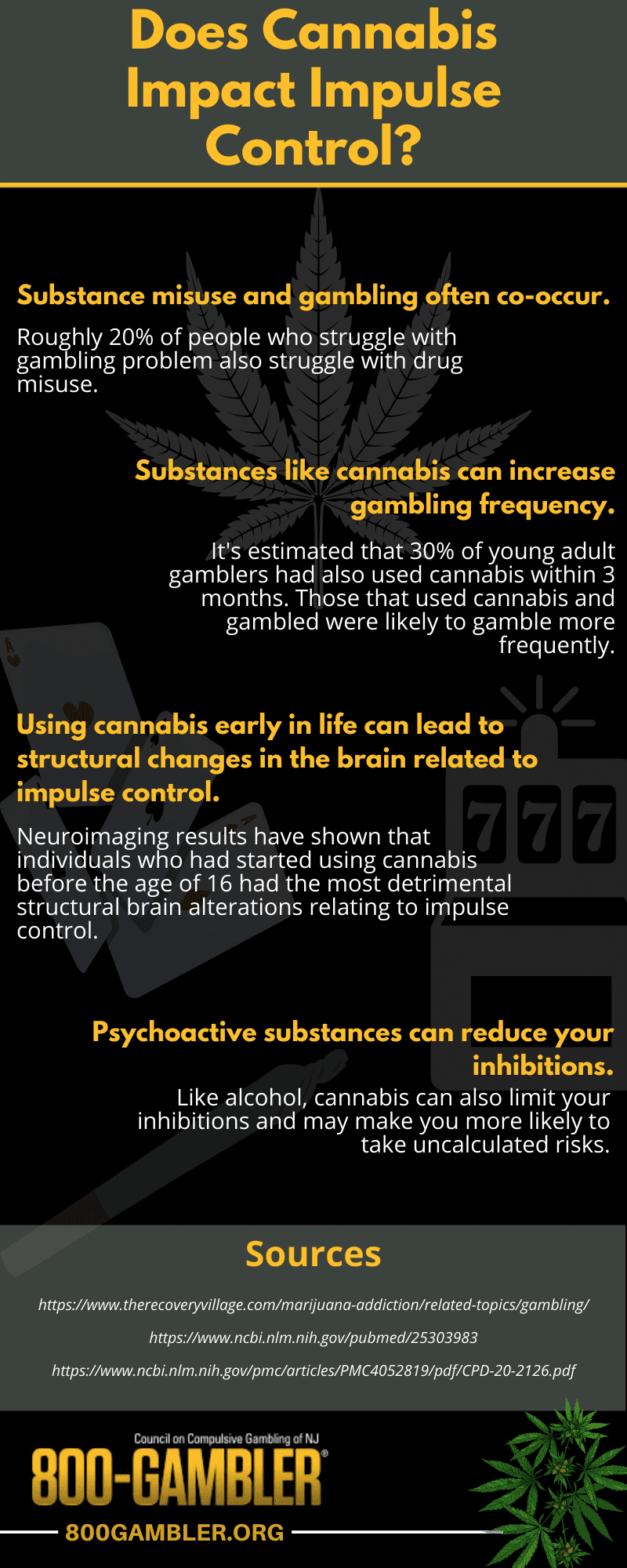Unfortunately, there haven’t been many studies into the relationship between drug use and impulsive behavior. On top of that, there isn’t a widely agreed-upon definition for what impulsive behavior actually is. Despite this lack of consensus, we do know that marijuana contains the psychoactive substance delta-9-tetrahydrocannabinol (THC). Though marijuana does not cause dependency outright, it activates the brain’s reward system, creating a habit-forming cycle — not unlike problem gambling.
Problem gambling occurs when individuals feel an uncontrollable urge to gamble, despite negative consequences and other challenges. The act of gambling can trigger some of the same areas of the brain as certain types of drugs, so there is reason to believe that problem gambling habits may share a common link with cannabis dependency.
Substance misuse and problem gambling tend to go hand-in-hand.
Casinos, race tracks, sporting events, and other areas where gambling may occur are often hotbeds for drinking, smoking, and drug use. It’s common for individuals struggling with problem gambling habits to also struggle with substance misuse. According to one study cited by Recovery Village, roughly 20% of people who struggle with gambling disorder also struggle with substance misuse.


In a study conducted in 2014, it was estimated that 30% of young adult gamblers had also used cannabis within three months. Those that used cannabis and gambled were likely to gamble more frequently.
There is evidence that pre-existing impulsive behavior habits can be exacerbated by substance usage.
According to a 2014 article published by Current Pharmaceutical Designs, impulse behavior is regulated in the prefrontal cortex. The prefrontal cortex is the area of the brain that deals with higher-order executive functions, including self-control. After studying several key variables, it was found that cannabis use increased brain metabolism. Neuroimaging results have shown that individuals who had started using cannabis before the age of 16 had the most detrimental structural brain alterations relating to impulse control.
Beyond that, studies into cannabis’s neurological effects and its acute impacts are limited. As the decriminalization and legalization trends continue, it will become increasingly important to engage with the science of cannabinoids and the possible long-standing effects on brain chemistry.
For now, cannabis and alcohol can be treated similarly.
You wouldn’t get behind the wheel after taking a shot, so you shouldn’t get behind the wheel after using marijuana. Each of these substances can have negative impacts on brain development if they are used before the brain reaches maturation. Like alcohol, cannabis can also limit your inhibitions and make you more likely to take uncalculated risks.
Test Your Knowledge of the Relationship Between Problem Gambling and Cannabis
If you or a loved one are struggling with problem gambling, our 24/7 confidential helpline is here for you. Call or text 800-GAMBLER to be connected with local resources and support for recovery.



